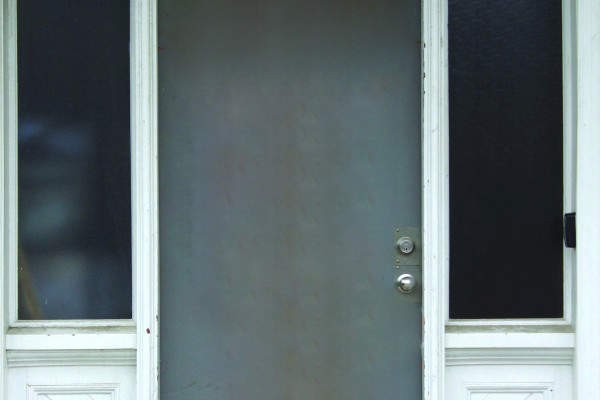It’s the time of year when flatting is on the mind. Whether you’re sorting out next year's lease, continually tidying the communal spaces ahead of flat viewings, or frantically trying to assemble the perfect group to live – it’s top of the to-do list for many tauira. It was also the focus of an event the Green Party held last Tuesday: ‘Housing for all with Tamatha Paul’ (complete with free pizza and tea with on-brand green-topped milk). A panel of speakers discussed one of the key issues affecting New Zealanders: housing.
The first speaker was headliner and Greens Member of Parliament for Wellington Central, Tamatha Paul. She spoke of her own experience as someone who doesn’t own a home, one of few MPs to not. “It’s really important that we have people in Parliament who know what it’s like to rent. Who know what it’s like to move around every year. Who know what it’s like to accept housing that isn’t up to the standard of what you deserve or expect, but you take it anyway because there isn’t any other option,” she said.
Tamatha outlined a vision of public housing that first meets the needs of those without homes, but also goes beyond, providing homes for students and non-struggling families as well. She posed these questions: “How good would it be if students could live in public housing where their rent was capped at 25% of their income? How great would it be if young families could access public housing and be able to save for a mortgage?” This would require massive government investment in housing, though Tamatha sees this as an opportunity to provide some relief and certainty to our struggling construction industry. She argued that society must reframe houses from being investments to instead being actual places where people live.
Joining Tamatha to make up the panel was OUSA President Liam White, Otago Regional Council Candidate Alex King, and health practitioner Dr. Simonette Mallard. Liam spoke very briefly about the importance of housing and rental policy to students. King spoke next, focusing on their Toi Ora co-housing project, where he, as part of a group, created an intentional community up on High Street – kind of like a big flat group, but permanent, fancier (they have a sauna), and expensive (though apparently cheaper than buying a home individually).
Dr. Mallard spoke next on the role of housing in determining health outcomes, with an estimated social cost of over $1 billion every year. “Annually we have about 6,300 hospitalisations due to dampness and mould, 1,500 injuries causing hospitalisation sustained in the home, over 600 hospitalisations caused by cold housing, and another 500 hospitalisations due to housing crowding. Every year we have about 230 deaths due to these kinds of conditions, and over half of these are likely due to damp and mould in housing.” Renters, Māori, and Pasifika are all groups more likely to be living in these kinds of unhealthy homes.
The key problem identified by the panel was inequality – not just between tenants and landlords, but also on a broader systemic level. Poor housing is not only representative of disadvantage, but also helps perpetuate that disadvantage. “It’s not an equal playing field,” said Liam, noting that, compared to landlords, tenants have basically no power, resources, or ability to act collectively. Meanwhile, landlords struggle to face any real consequences for poor practice. Another important aspect of the discussion was accessibility. 2% of our housing stock is accessible, a number far lower than Aotearoa’s disabled population. One point raised was that if anyone can live in an accessible house, surely accessible houses should just be standard.
After the talk, Critic Te Ārohi spoke with several of the attendees including Local Greens council candidate Lily Warring, Welfare and Equity Rep candidate Liam Melvin; and Mayoral candidates Flynn Nisvett of the Silly Hat Party and Ruthven Allimrac of the Radical Action Faction (a self-identified vampire who notably only turned up after the sun had gone down). Both Warring and Melvin related to their own poor experiences flatting as students in Dunedin and Wellington respectively, with Warring noting the particular importance of building and finding community. There was agreement between Allimrac and Nisvett that they believed that landlords, profit, and money were “the root of all evil”.
With Local Body Elections on the home stretch and a General Election on the cards for next year, there are plenty of candidates putting their hand up to try and make the system better. As housing remains a decisive issue for many Kiwis, there’s little doubt panels like these may be planting the seeds for change in the future.






